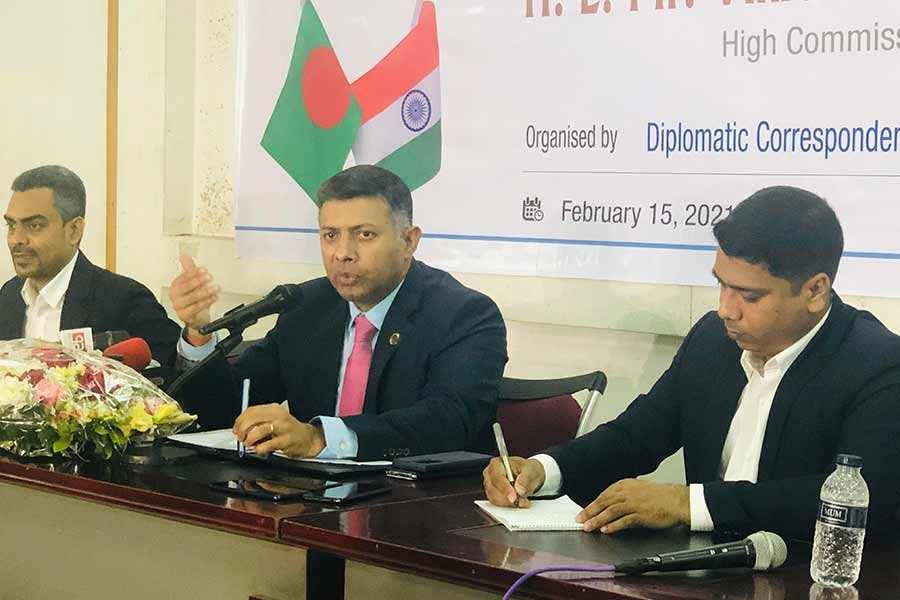Despite maximum efforts by the Indian federal government, Teesta water sharing deal is unlikely to be inked during Indian Prime Minister Narendra Modi’s visit to Dhaka next March.
Indian High Commissioner Vikram Doraiswami came up with the statement while speaking at the DCAB talk organised by Diplomatic Correspondent Association of Bangladesh (DCAB) at the National Press Club in Dhaka.
Responding to questions of newsmen, Doraiswami made it clear that enhancing friendship with Bangladesh is the cornerstone of the Indian foreign policy.
About the Teesta deal, the high commissioner said that the state governments in India have the ultimate say on the issue of water sharing and that is why the deal remains pending despite the maximum efforts by the federal government.
He reiterated Indian government’s commitment to ink the deal as soon as possible and mentioned that his government believe in the fair sharing of water of common rivers.
In this connection, he also pointed out that data sharing of the other six common rivers is going on and deals on sharing of water of those rivers might be signed in near future.
While talking about border killings, Doraiswami explained that basically economic factors caused the problem as poor people on the border area are being engaged in smuggling by the local criminal gangs.
"Border Security Force (BSF) of India has been instructed not to kill people on border but sometimes they have to shoot as a last resort to save themselves," he added.
He said that these criminal elements often attack the BSF patrols when they were caught by the BSF.
Doraiswami said that the criminal activities can be stopped through improving the economy of the area and for this reason economic activities should be increased on the border area.
On the issue of connectivity, the Indian high commissioner said that if flow of goods increases between the two countries it will help boost the economies of both the countries.
To increase the flow of goods we need to enhance the connectivity, he noted adding that both the countries are serious in promoting regional connectivity to boost trade.
On Bangladesh’s scope of trading with Nepal and Bhutan through Indian land, he said that in the BBIN framework, the provision is there.
In fact India has offered this facility to Bangladesh but t avail these some regulatory legal criteria should be finalised.
“If a Bangladeshis truck violates regulations what should be the penalty or who will fix it? This kind of things should be sorted out before making the Bangladeshi trucks’ movement through Indian land operational” he said.
According to Doraiswami Indian does not feel that its ties with Bangladesh get hurt due to rise in China’s engagement in Bangladesh.
He said that there was mistrusts between the two countries on a lot of issues which was usual phenomena but both the countries have overcome those mistrusts due to the commitment from the two top leaders of both the countries.
He also mentioned that whoever comes to power in India, the policy towards Dhaka remains same and that is to further enhance the excellent ties with Bangladesh.
"A successful Bangladesh makes India proud, and a developed Bangladesh is good for the fundamental interest of India," the Indian high commissioner pointed out.
DCAB President Pantho Rahman moderated the discussion while its secretary AKM Main Uddin delivered the welcome remarks.


